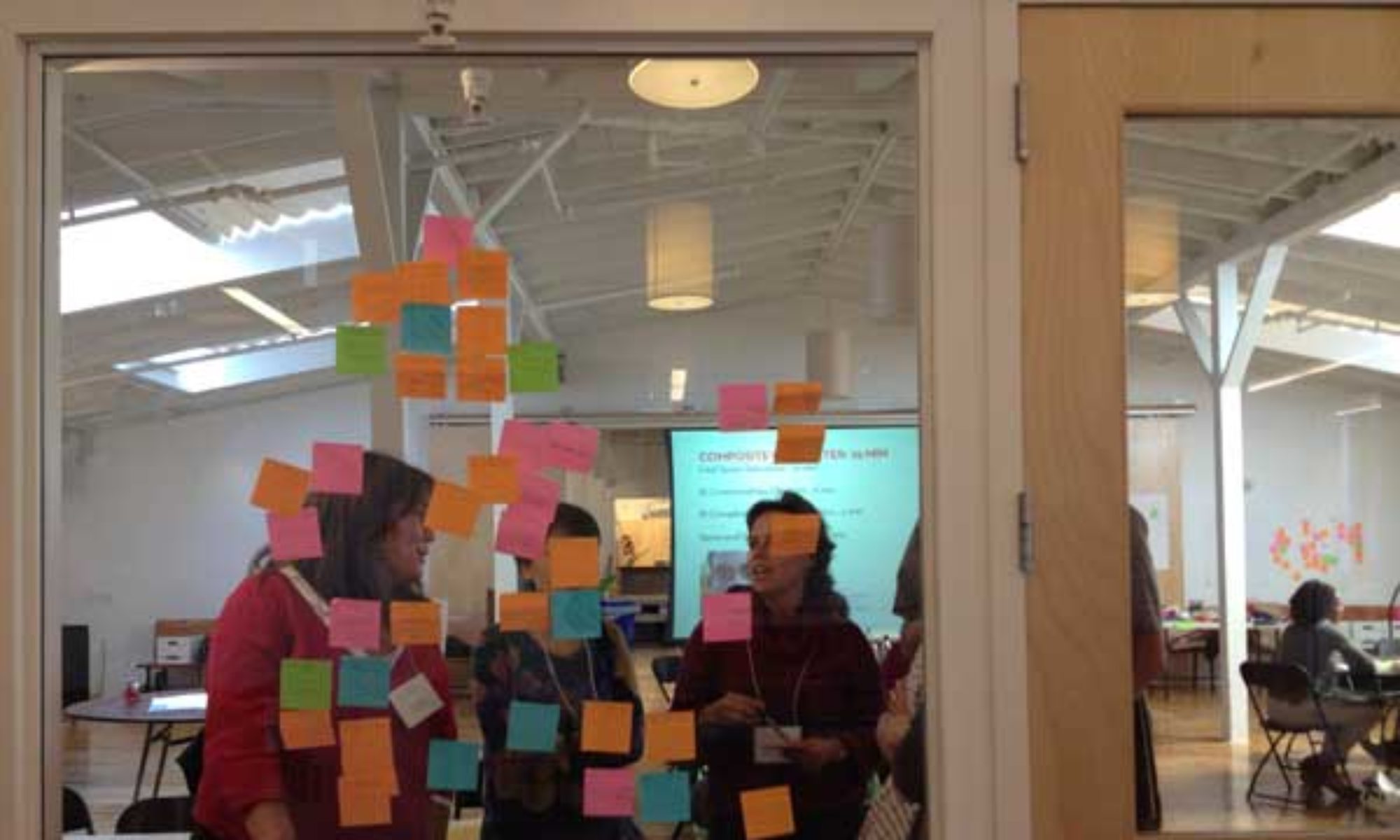Why do we need this space to think about the future of work and education together? MakeKnowledge founder Mark Basnage explains the thinking behind launching this work, which kicked off with our February 2020 international conference:
Here in the greater Silicon Valley, there’s no shortage of conversations about the future of work. But I noticed that the conversation about the future of work is repeatedly skewed in a few ways. First, it’s almost always tech-centered. Whether for good or evil, the robots are coming. Second, the conversation often doesn’t recognize that work isn’t working for many people right now. Related to this, the conversations aren’t often diverse — usually led by a lot of white guys from industry, government, and academia. Fourth, in these conversations, work is defined reductively and mechanistically. I was at a presentation about a year ago where one expert defined work as just three things: solving problems, using skills, and doing tasks. That’s it. In this framing, work isn’t concerned with meaning making, moral decisions, community, challenge and mastery, identity, creativity, dignity, and so on.
Something similar happens with conversations about the future of education. Here, the word future immediately suggests technology—for instance, in connecting students to intelligent tech-enabled learning platforms. Here also, education is defined reductively—education becomes learning, and learning becomes cognition and recall. And here too, the “experts” talking about the future of education aren’t often diverse and don’t have broad experience across the fractured educational landscape. Perhaps we can be forgiven for not seeing the faulty framing here because so much attention and money has been lavished on programs that inhabit this framework, from the Wildflower Schools ($10M in funding,) AltSchool ($170M), or WeLearn, or any number of personalized learning software and service packages.
I noticed that even when people come with a more expansive view of work, K-12 educators are never part of the discussion. I have seen conversations with labor, philanthropy, government and higher education. But I have never seen the K-12 field invited. Clearly, the many adults in K-12 are indeed working, whether as teachers or principals or otherwise, and so they should have standing to participate. But there seems to be a mental separation between adults who participate in the “real” world of work, and those who prepare others for the world of work.
The world is changing at a crazy pace, and we are not moving to a new stable state. This new world requires all of us to be lifelong learners. If there was a time when preparation was completely separate from participation, that time is gone. Most of us will need and want to be taking advantage of new educational opportunities throughout adulthood.
For all of these reasons, it’s important to bring together the conversations about the future of work and the future of education. Doing so takes technology out of the center, and more importantly, re-centers humanity in both conversations.
As long as the conversations of work and education are alienated from each other, humanity is made out to be passive and reactive, waiting to react to new technological developments, and for whatever the market brings. With the conversations brought together, we see humanity again — real humans who grow and learn, discover their passions and dreams, collaborate and interact, and work together.
Bringing together education and work — and allowing both of them rich, humane definitions — opens up a vast new landscape of opportunity. We can look at entire human journeys in and out of school and work. We can make sure that we are building communities and societies that enable everyone to thrive. We can also find new opportunities for ourselves, wherever we are on our own pathway.
Since work and education are both public goods, then we should be empowered to dream together about what we want.
One of the other reasons to do this work, starting with this event, is to bring people together across the fractured educational landscape. Many teacher and school leaders don’t get a chance to interact with peers who work at a different level (middle school/ high school/ higher education, etc) or in a different type of school or school system (charter/public/independent/ community college/ etc).
Finally, I saw that there are a lot of amazing people and organizations in this landscape doing good work, operating with much richer definitions of work and education. Many of these presented at our first conference. Others have supported it in other ways, like venture capitalist Roy Bahat, whose video interviews were part of the conference day (and live on in our YouTube channel).

